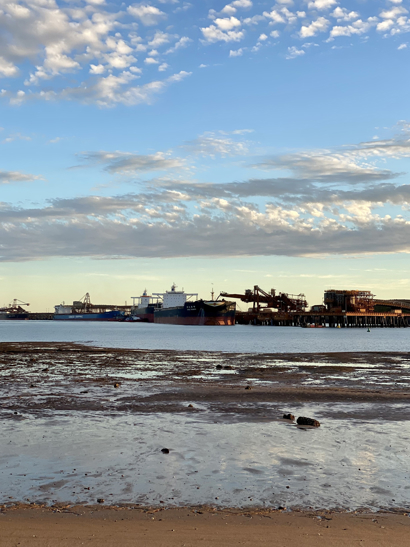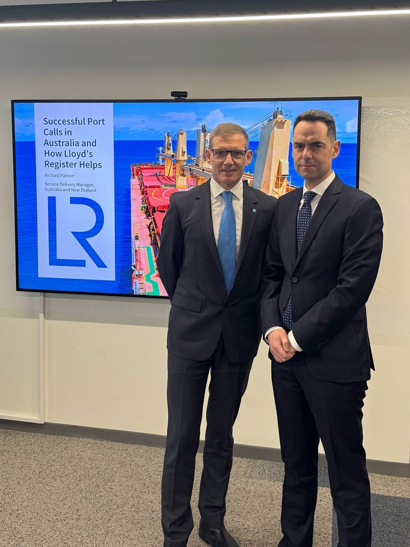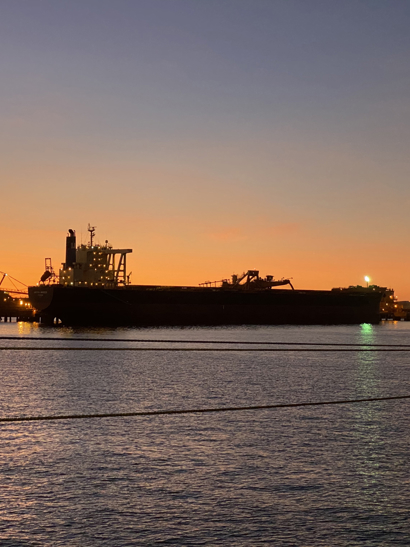Although often considered as stricter than authorities in other jurisdictions, the Australian Maritime Safety Authority (AMSA) exists to ensure that shipowners and their vessels comply with international maritime regulations. In Australia, where much of the country’s seaborne exports are shipped in bulk carriers, the dry bulk sector is often in the spotlight, explains Nikos Kakalis, LR’s Global Bulk Segment Director.
Australia is the world’s largest exporter of iron ore, and number two in coal, and thus bulk carriers are essential to the country’s economy and global supply chains. Huge volumes of these major bulks are shipped on long voyages. Latest figures reveal that Australia exported about 900 million tonnes of iron ore in 2024, and 340 million tonnes of coal. Of the 28,650 commercial vessel arrivals at the country’s ports, 14,225 were bulk carriers.
Mining is a mainstay of the country’s economy and its export terminals in Port Hedland, the world’s largest iron ore port, and Newcastle, ranked world number two in coal, are key ports for a steady stream of the biggest bulk carriers in the global fleet. A quarter of all port state control inspections occur in Port Hedland and Newcastle. The huge island nation, with one of the world’s longest coastlines, is also a treasure within the natural world. About 90% of Australians live within one hour of the coast and thrive on clean beaches and the sea.
Nikos Kakalis tells Horizons that many of these owners view AMSA as one of the world’s most stringent safety agencies. Although calling Australia can often be challenging, AMSA in reality is enforcing international regulations that apply in all other reliable maritime jurisdictions, he says.


“With the right preparation, getting ready for a port call in Australia can become straightforward and nothing to fear,” says Richard Palmer, LR’s Australia and New Zealand Service Delivery Manager. “In addition to AMSA requirements, port authorities and charterers can, and in many cases do, have additional requirements that need to be factored into the planning for a port call.”
Bulkers in focus
However, AMSA statistics do appear to indicate record numbers of ship deficiencies regularly reported. More than half of Australian port calls are made by bulk carriers which also account for slightly less than 60% of total recorded deficiencies.
In 2024, some 14,255 Australian port calls were made by bulk carriers. 2,264 port state control inspections conducted of which 1,224 on bulk carriers, were conducted by AMSA, resulting in 83 detentions of bulk carriers, over 60% of all detentions.
Bulk carriers in the age range between ten and 15 years are the largest group of ships with deficiencies. But the 14,000-plus bulkers of all sizes, young and old, calling at the country’s ports last year each logged an average of 2.75 deficiencies.
Nikos Kakalis points out that in certain bulk market conditions, ships may not be taken on hire from other geographical locations. They may already be moored on an Australian anchorage prior to being chartered. Any deficiencies found by AMSA at that stage, he says, are likely to prove very expensive to rectify.
However, Nikos Kakalis and his team emphasise that crew familiarisation and continuous training could avoid such a situation. With forethought and third-party guidance, most of the deficiencies are usually entirely avoidable. And, he says, the issues found onboard could have often led to a port state detention in any number of other bulk ports had a port state control inspection taken place in another jurisdiction.
Typical issues include emergency equipment, and safety appliances. Deficiencies can result in lengthy ship delays, substantial additional and unnecessary costs, and quite possibly, going off-hire.
Nikos Kakalis and other LR bulk experts are pioneering a strategy to sort things out. Dry bulk shipping, he points out, is essential not only for the Australian economy, but also for manufacturing as well as for consuming nations who need raw materials for their own existence.
Richard Palmer explains why LR is ideally placed to tackle the issue. LR is by far the largest class society in Australia, having operated in the country for 152 years. And, over that time, it has built a reputation as the number one source of trusted advice and guidance. “Our team of surveyors in Australia pride themselves on being responsive and dependable – ready to support LR’s clients when it matters most, helping to minimise the impact of any issues that may arise during a port call.”

Experts on the spot
Nikos Kakalis highlights its 22-strong network of specialist bulk carrier surveyors in key locations, all geared up for fast response times and efficient logistics when issues arise. And, depending on the prevailing market, they can help to avoid a few days’ delay that could run into hundreds of thousands of dollars in lost hire, he says.
LR has a framework for owners, operators and charterers, setting out best practice for efficient port calls and minimum delays. This is designed as a strategic and commercially effective approach in a bulk shipping sector that runs on very tight schedules and thinner margins.
Nikos Kakalis emphasises that given suitable guidance, ships’ crews are often seen to adopt a different and more proactive approach to port calls in Australia. Once they realise that AMSA’s regulations are no stricter than those that should apply anywhere else, they are fully onboard, he says.
The downside, on the other hand, is a commercial and reputational challenging situation that can stick. When a shipowner’s average detention rate equals or exceeds 1.5 times the preceding 12-month average for all ships, AMSA will label the company as ‘poor performing’.
Once identified as such, the owner has 28 days to present AMSA with a formal rectification plan outlining steps that will be taken to respond to the situation. Meanwhile, the Australian agency publishes details of ‘poor performing’ companies on its website.
When there is so much at stake, Nikos Kakalis prompts dry bulk owners and operators to develop suitable strategies proactively.
“That’s where LR can help put a ship owner on AMSA’s top performing operators list,” he states.


